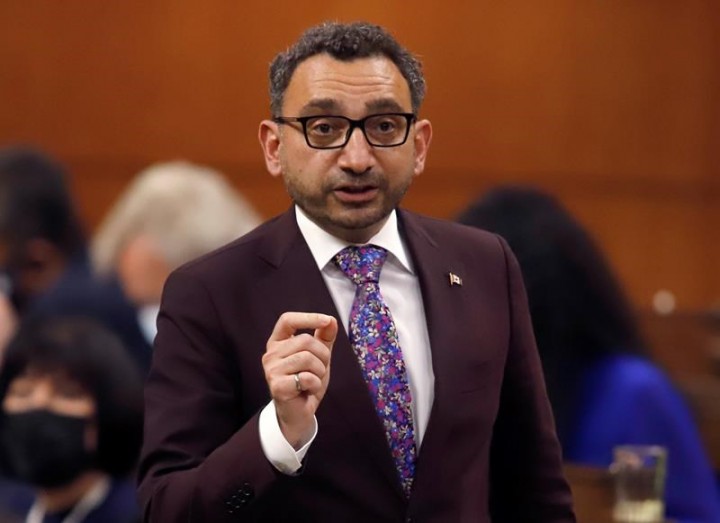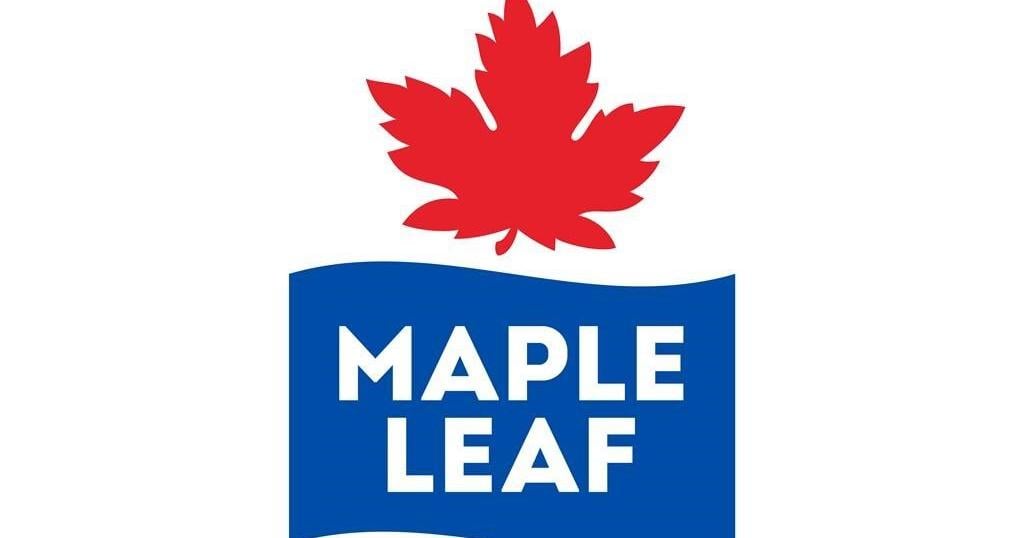WASHINGTON — The latest federal cabinet minister to press Canada’s case with President Joe Biden’s administration says he is detecting a positive “shift” in U.S. thinking when it comes to the question of tax incentives for electric vehicles.
Transport Minister Omar Alghabra spent Tuesday in Washington, D.C., for meetings with officials including U.S. counterpart Pete Buttigieg and senior White House adviser Mitch Landrieu.
It was just the latest in a series of cabinet-level visits — Defence Minister Anita Anand, Public Safety Minister Marco Mendicino and Trade Minister Mary Ng have been in town in recent weeks — where the ministerial marching orders included voicing opposition to the tax-credit scheme.
Biden’s original vision was a sliding scale of tax incentives, with the richest ones reserved for electric vehicles assembled in the U.S. with union labour — a proposal Ottawa feared would be devastating for Canada’s auto sector.
It died back in December when West Virginia Sen. Joe Manchin, a vital vote in the evenly divided Senate, refused to support Biden’s $2-trillion environmental and social spending package, known as Build Back Better.
Ever since, Canada has maintained a strict defensive footing against the tax credits coming back to life.
“I don’t know if the old incarnation is going to come back exactly as it was or not. But I can say that what I am sensing today is that there is now a shift in strategic outlook,” Alghabra said.
The war in Ukraine, and the way NATO members and allies have made common cause with each other in pushing back against Russia, is putting a “new frame” around how the U.S. deals with its allies, he noted.
The world, including the U.S., better understands that trustworthy trading partners and consistent, reliable supply chains that are impervious to unexpected geopolitical shocks have long been taken for granted.
“There is, I think, a new frame for the conversations that are taking place in the U.S. And while I don’t know what the future of the previous EV tax credit is, I am hopeful that I think now we’re entering into a new type of discussion.”
The White House has acknowledged that it’s working on a scaled-down version of Build Back Better, but has so far refused to say publicly whether the tax credits would return in their original form.
Kirsten Hillman, Canada’s ambassador to the U.S., said discussions are underway for legislation that would resurrect some of the environmental provisions of Build Back Better, including its “energy transition-related elements.”
Canada would welcome and support any effort on the part of the U.S. to fight climate change, she said.
“But we never miss an opportunity to re-emphasize with them that, in so doing, it’s imperative that as the staunchest of environmental allies, we do it together in a way that supports each other and doesn’t make this path that we’re on together harder for either of us,” Hillman said.
“That message is heard loud and clear by lawmakers on the Hill, by the White House, and they have expressed an understanding of our concerns, and more than that, a desire to make sure that it works for us in our partnership.”
Manchin, the mercurial moderate Democrat whose support has become essential for any White House measure on Capitol Hill, recently suggested he would not support any proposal that would harm Canada’s auto industry.
Manchin, who heads the Senate’s energy and natural resources committee, hosted Jason Kenney when the Alberta premier testified in person on Capitol Hill earlier this month.
The pair have become cross-border allies as the U.S. looks for ways to both combat inflation while reducing its dependence on fossil fuels from hostile regimes, while Kenney continues to prod the Biden administration to depend more on Canada for its short-term energy needs.
After the May 17 hearing, Manchin said he expects the White House is still working on some sort of a program to encourage American consumers to buy more electric vehicles and ease U.S. dependence on gasoline.
But he insisted that he wouldn’t support any measure that would hurt automakers north of the border.
“There’s no way in the world that we’re going to put that type of harm and allow that to happen,” Manchin said. “My vote would never support that at all.”
It was not abundantly clear whether Manchin was talking specifically about the tax credits or more broadly about Canada’s own efforts to develop its reserves of critical minerals, a key component in the production of electric vehicles.
That ambiguity is part of why Canada remains so guarded on the subject, Hillman said.
“Until we see what is actually on the table and how it’s going to be implemented, we cannot rest.”
Manchin and Kenney both voiced support for the idea of a more closely integrated Canada-U.S. energy “alliance.” It would focus on the need for traditional energy in the short term, as well as reliable bilateral supply chains for critical minerals.
Alghabra said the role Canada could play in buttressing U.S. supply chains for those minerals is also generating increased interest south of the border.
“We have more of those critical minerals, and some types of the critical minerals that the U.S. doesn’t have,” he said. “There’s a new sense of interest and intrigue about this new frame that I think maybe did not exist last year.”
This report by The Canadian Press was first published May 26, 2022.
James McCarten, The Canadian Press
Related


































